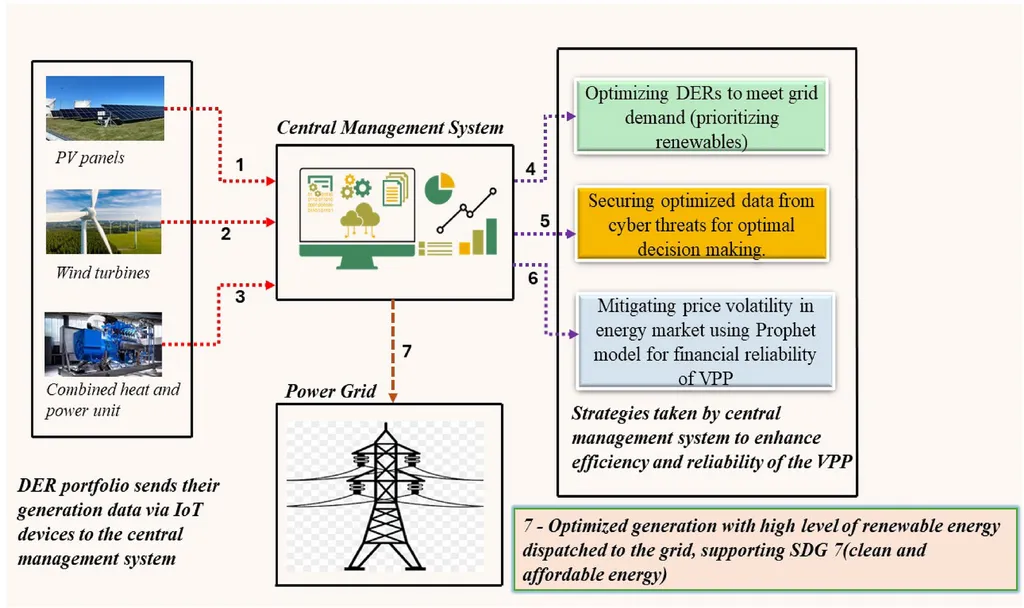In the rapidly evolving energy sector, virtual power plants (VPPs) are emerging as a critical tool for managing the complexities of modern power systems. These innovative systems integrate distributed energy resources—such as renewable energy sources, energy storage systems, and controllable loads—to create a more flexible and efficient grid. However, as Yujie Jin of the College of Electrical Engineering at Shanghai University of Electric Power explains, the path to widespread adoption is fraught with challenges.
Jin’s recent research, published in the journal *Energies*, delves into the uncertainties that VPPs must navigate, particularly when participating in electricity markets. “The instability of renewable energy generation, fluctuations in load demand, and market price uncertainty all pose significant hurdles,” Jin notes. These factors can disrupt the optimal scheduling and management of VPPs, potentially undermining their effectiveness.
The study highlights three key areas where uncertainty impacts VPPs: aggregation, market bidding, and optimal dispatch. Aggregation involves combining diverse energy resources into a cohesive system, a process complicated by the variable nature of renewables. Market bidding requires VPPs to predict and respond to fluctuating electricity prices, while optimal dispatch involves efficiently allocating resources to meet demand. Each of these steps is vulnerable to disruptions, making it essential to develop strategies that can mitigate these risks.
One of the most compelling aspects of Jin’s research is its potential to shape future developments in the energy sector. By addressing the uncertainties that VPPs face, the study could pave the way for more reliable and efficient power systems. “Understanding these challenges is the first step toward creating solutions that can enhance the resilience of VPPs,” Jin explains. This could lead to greater adoption of VPPs, ultimately contributing to a more sustainable and flexible energy grid.
The commercial implications of this research are substantial. As energy markets continue to evolve, VPPs offer a promising avenue for integrating renewable energy sources and improving grid stability. By tackling the uncertainties that currently hinder their performance, Jin’s work could help unlock the full potential of VPPs, benefiting both energy providers and consumers.
For energy professionals, this research serves as a reminder of the complexities inherent in modern power systems. As the sector continues to transition toward renewable energy, the ability to manage uncertainty will be crucial. Jin’s insights provide a valuable framework for navigating these challenges, offering a roadmap for the future of energy management.

